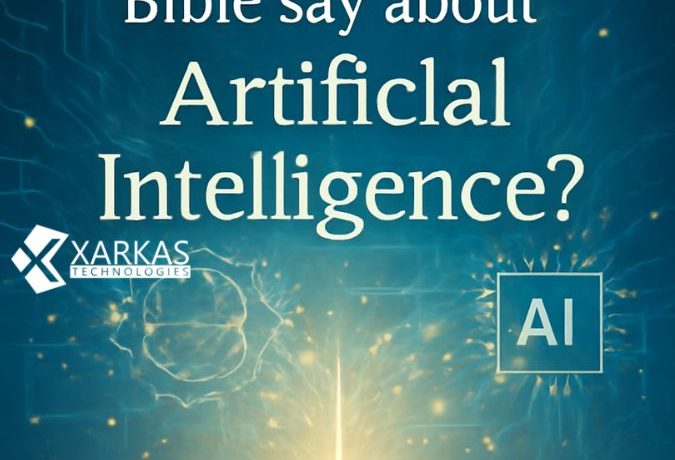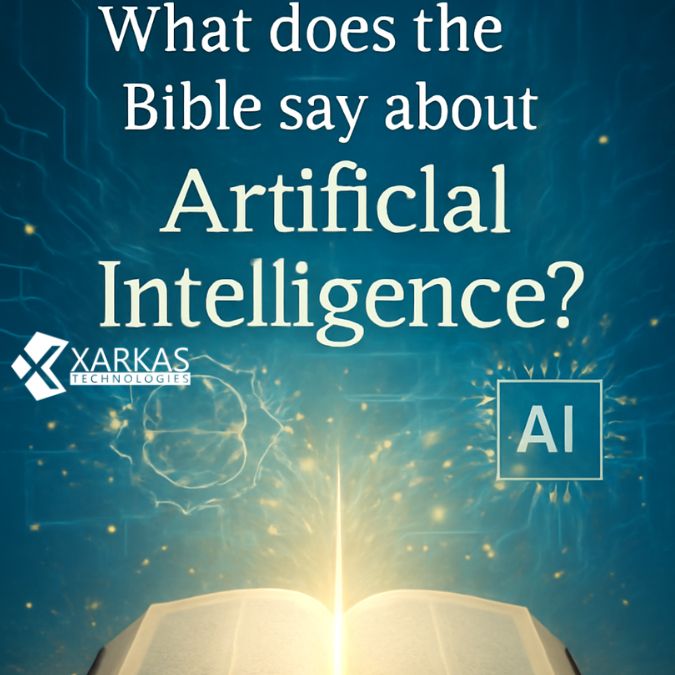
What Does the Bible Say About Artificial Intelligence? A Faith-Informed Guide
Table Of Content
- Does the Bible Address AI Directly?
- Humans Are Image-Bearers—AI Is Not
- Wisdom, Knowledge, and the Fear of the Lord
- Stewardship, Not Idolatry
- Justice, Bias, and the Poor
- Truth, Misinformation, and Integrity
- Work, Creativity, and Human Purpose
- Caution Against Hubris
- Can AI Be Conscious or Have a Soul?
- Practical Guidelines for Christians Using AI
- How Churches Can Engage AI Redemptively
- Hope and Responsibility
Artificial intelligence (AI) is transforming daily life—from smart assistants and personalized recommendations to medical diagnostics and creative tools. For Christians and Bible readers, a pressing question emerges: What does the Bible say about artificial intelligence? While Scripture doesn’t mention AI explicitly, it offers timeless principles about wisdom, creation, technology, morality, and human responsibility that can guide a faithful response. This post explores biblical insights that help evaluate AI ethically and spiritually, and offers a grounded path for believers navigating this fast-changing landscape.
Does the Bible Address AI Directly?

The Bible doesn’t speak about computers or machine learning, but it does speak about the nature of human beings, the proper use of knowledge, and how we should steward creation. These themes apply directly to how AI is built, deployed, and used. Rather than searching for a verse that mentions algorithms, a biblical approach asks: What does God reveal about human purpose, wisdom, power, and accountability?
Humans Are Image-Bearers—AI Is Not
Scripture teaches that humans are uniquely made in the image of God (Genesis 1:26–27). This has profound implications:
-
Human life has inherent dignity and worth; no technology can replace or replicate personhood.
-
AI, no matter how advanced, is a human-made tool—not a moral agent, not a soul, not an image-bearer.
-
Decisions that affect human dignity—such as justice, healthcare, warfare, and employment—must prioritize people over performance metrics or profit.
In practice, this means resisting any tendency to treat people as data points and remembering that tools exist to serve human flourishing, not to define it.
Wisdom, Knowledge, and the Fear of the Lord
The Bible highly values wisdom grounded in reverence for God: “The fear of the Lord is the beginning of wisdom” (Proverbs 9:10). AI amplifies knowledge and predictive power, but wisdom discerns how knowledge should be used. A biblical view of AI:
-
Embraces innovation while testing motives, methods, and outcomes.
-
Refuses to separate technical capability from moral responsibility.
-
Asks not only “Can we build it?” but “Should we build it?” and “How should we use it?”
Christians are called to cultivate discernment, seeking God’s guidance in both the creation and application of technology.
Stewardship, Not Idolatry
From the beginning, God commands humanity to cultivate and care for the world (Genesis 1:28; 2:15). Technology—including AI—can be a form of stewardship, extending our ability to heal, protect, and create. But technology can also become an idol when it becomes our ultimate hope for salvation, identity, or control.
-
Stewardship: using AI to alleviate suffering, improve safety, enhance learning, and extend access to healthcare and justice.
-
Idolatry: trusting AI to deliver meaning, erasing moral boundaries in pursuit of power or profit, or treating algorithmic outputs as unquestionable truth.
The biblical path pursues responsible innovation while guarding the heart against pride and misplaced trust.
Justice, Bias, and the Poor
Scripture consistently emphasizes justice, protection of the vulnerable, and honesty in measurements and judgments (Micah 6:8; Proverbs 11:1). AI systems learn from data that can encode human bias, which can harm marginalized groups in hiring, lending, policing, and healthcare. A biblical ethic requires:
-
Transparency: understanding how systems make decisions, especially when outcomes affect livelihoods or liberty.
-
Accountability: clear responsibility when systems cause harm; “the algorithm did it” is not a moral defense.
-
Equity: regular auditing for bias and active correction to protect the vulnerable.
Using AI justly is a way to love neighbors in a data-driven age.
Truth, Misinformation, and Integrity
The Bible commands truthfulness and condemns deceit (Ephesians 4:25; Proverbs 12:22). Generative AI can create convincing fake images, text, and audio. Christians should:
-
Verify sources before sharing content.
-
Use AI tools that label synthetic media or provide citation trails.
-
Advocate for policies and practices that reduce deception and promote digital integrity.
Integrity doesn’t reject technology; it reforms its use.
Work, Creativity, and Human Purpose
Work is part of God’s good design (Genesis 2:15), and creativity reflects the Creator’s nature. AI will reshape jobs, automate tasks, and augment skills. A biblical perspective:
-
Values workers over mere efficiency; transition support, re-skilling, and dignity in work matter.
-
Sees AI as augmenting craftsmanship, not replacing human creativity, empathy, and moral judgment.
-
Encourages Christians in tech to design tools that elevate meaningful work and reduce drudgery.
Human purpose isn’t reducible to productivity; it’s found in loving God and neighbor.
Caution Against Hubris
The Tower of Babel (Genesis 11) illustrates humanity’s recurring temptation: to seek glory and control apart from God. AI magnifies human capability—and with it, the risks of pride, surveillance overreach, dehumanization, and concentration of power. Biblical humility:
-
Acknowledges limits, invites critique, and welcomes regulation that protects public good.
-
Prioritizes safety research, red-teaming, and robust evaluation before deployment.
-
Keeps people at the center, resisting “move fast and break things” when stakes include real lives.
Humility isn’t anti-progress; it’s the path to progress that serves rather than harms.
Can AI Be Conscious or Have a Soul?
Christian theology ties personhood to being made in God’s image, not to computational complexity. Even if AI mimics emotions or conversation, simulation isn’t sentience. Ethical care is still required—for the sake of humans affected by AI—not because AI is a moral patient. The line is clear: treat AI as a powerful tool, and treat people as neighbors.
Practical Guidelines for Christians Using AI
-
Pray for wisdom: seek God’s guidance before major tech decisions at work or home.
-
Use AI as a servant, not a master: set boundaries for time, attention, and reliance.
-
Protect privacy: prefer tools with strong data safeguards; limit sharing of sensitive information.
-
Demand transparency: ask vendors how models are trained, tested, and audited.
-
Love the vulnerable: support policies and practices that guard against bias and exploitation.
-
Pursue excellence: if working in AI, write clear documentation, test thoroughly, and refuse unethical features.
How Churches Can Engage AI Redemptively
-
Teach digital discernment: equip congregations to spot deepfakes, misinformation, and manipulative content.
-
Leverage wisely: use AI to translate sermons, improve accessibility, or assist research—while retaining pastoral oversight and human care.
-
Uphold community: invest in embodied fellowship and pastoral presence that no technology can replicate.
Hope and Responsibility
AI presents both promise and peril. The Bible offers a compass rather than a codebook: honor God, love neighbors, pursue justice, tell the truth, practice humility, and steward creation. When these convictions guide design and use, AI can serve as a tool for common grace—amplifying human good without eclipsing what makes humanity sacred.







No Comment! Be the first one.